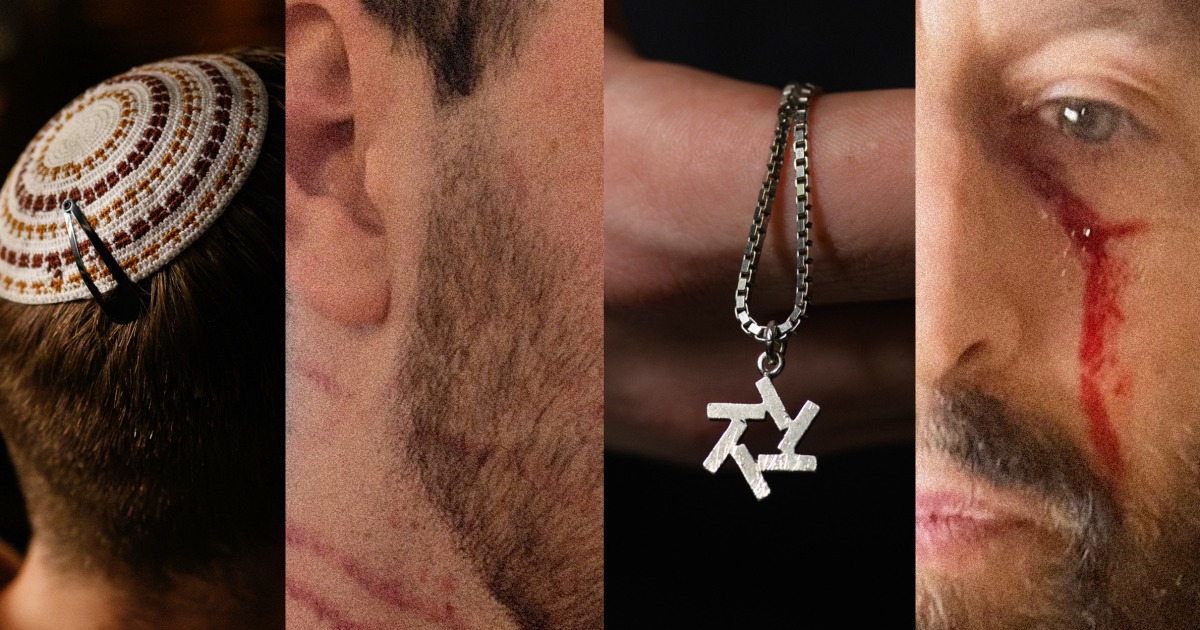A spokesperson for the University of Pittsburgh said it “unequivocally condemns antisemitism” and will provide campus police escorts to Jewish students during the upcoming Jewish holidays.
After the attack on Goodwin, two Jewish students at the University of Michigan were assaulted in separate incidents off campus. And on Friday, a group of six to eight men assaulted another Jewish student off campus at the University of Pittsburgh while using antisemitic slurs. The FBI has opened an investigation into whether the attack constitutes a federal hate crime, NBC News has reported.
With the new school year underway nationwide, law enforcement officials say they are seeing antisemitic violence as the anniversary of the Oct. 7 Hamas attacks on Israel approaches. At the same time, more radical protest groups are publicly grieving Israel’s recent killing of the longtime leader of Hezbollah, Hassan Nasrallah.
“His martyrdom, his ideas and legacy will remain a beacon of hope for thousands to honor after him,” Within Our Lifetime, one of the most disruptive protest organizations in New York, posted on X.
Samidoun, a Canadian-based nonprofit group that praises Hamas and Hezbollah and is one of the most extreme groups involved in campus protests, also lamented the killing of the leader of Hezbollah, which U.S. officials blame for killing hundreds of Americans.
“Death to enemies and the racist Zionist entity,” wrote Samidoun, whose name means “steadfast” in Arabic. “Victory to the resistance.”
Charlotte Kates, a co-founder of Samidoun, which has also conducted teach-ins and letter-writing campaigns on campuses since at least 2012, said in a wide-ranging interview with NBC News that the demonstrations won’t end anytime soon.
“There’s many actions and demonstrations being mobilized,” Kates said, referring to the anniversary of Oct. 7. “I would expect that people are going to be getting out in the streets.”
Although some people have engaged in violence and attacks on Jewish students, the majority of the campus demonstrations have not resulted in arrests or injuries. And pro-Palestinian activists have long stated they are not anti-Jewish, and that being anti-Israel is not antisemitic.
They also argue they too have suffered violence, discrimination and intimidation at work and at school. The Council on American-Islamic Relations (CAIR), the nation’s largest Muslim civil rights organization, reported this spring that they received 921 education-related complaints in 2023, including bullying and discrimination, a 219 % increase over the previous year.
They said there were numerous violent attacks on Palestinian, pro-Palestinian and visibly Muslim students around college campuses, as well as harassment of visibly Muslim students or students wearing keffiyehs.
The group cited multiple incidents since Oct. 7, including the stabbing of a Palestinian man near the University of Texas at Austin in February after he attended a pro-Palestinian protest and an attack on protesters at a pro-Palestinian encampment at UCLA in May. In New York that month, a Jewish driver struck a protester with his car at an off-campus demonstration involving Columbia students. CAIR also said incidents of police brutality against students occurred.
“There have been numerous violent attacks,” said Edward Ahmed Mitchell, CAIR’s national deputy director.
In an effort to curtail violence and disruptive protests, dozens of colleges and universities across the country rolled out new policies, or clarified their existing rules, this summer to prevent building takeovers, dayslong encampments and property damage, which has cost schools millions of dollars.
Earlier this month, a bipartisan group of Congress members asked the U.S. Commission on Civil Rights to share information on an “alarming rise in antisemitism on college and university campuses.” A commission spokesperson said the request is currently under review.
And Kenneth Marcus, who ran the Education Department’s Office for Civil Rights under former Presidents Donald Trump and George W. Bush, said more attacks are possible if universities are lax.
“The real danger when no one is enforcing rules is that lawlessness can lead to very serious violence,” he said. “It may be that many of the protesters simply want to express their point of view, but the conditions are increasingly ripe for serious criminality and violence.”


